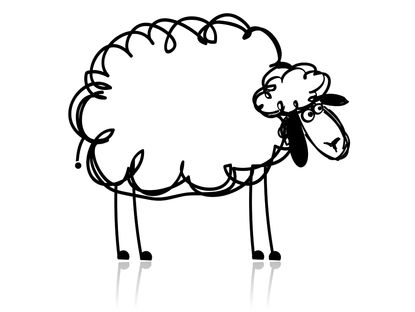We regularly support people in teams and organisations to discover and deploy their strengths. Our experience is that this is very beneficial. Inviting people to think about energizers in their work and what they are good at proves to be a source of enthusiasm. And it improves mutual relationships. But how does it work exactly? That's what we wanted to investigate.
That's why we started a scientific study together with Prof. Marianne van Woerkom and Dr. Christina Meyers of Tilburg University: What exactly is the effect if people participate in workshops in which they are invited to discover and use their talents?
Approach
We were able to work for an association of five primary schools. We provided workshops for their teachers. First, a start-up meeting where they reflected on their own strengths and designed experiments to deploy these in their job. In a second meeting, six weeks later, participants reflected on what was successful and where they had managed to use their talents more effectively.
Before and after the workshops, participants filled out an online questionnaire. Analysing the results taught us that the strength workshops had resulted in participants being more positive about their own functioning than before the meetings.
The strongest effect turned out to occur with those participants who indicated in advance that they did not have a clear picture of their own strengths or how to use them. After the workshop, these people scored significantly higher on self-confidence and initiative for their own personal development compared to participants from the control group. Teachers who initially scored low on optimism, hope, resilience and self-confidence also benefited particularly from the workshops. Afterwards, they turned out to be far more inclined to invest in their personal and professional development.
Impact
This study led to several scientific publications, and to follow-up research. But it also had an effect on us. The insights of the research made us even more convinced of the relevance of working with a strengths-based approach. Moreover, new insights about what exactly works, when and for whom, helped us to develop even more effective workshops and instruments. In this way, we continue to make connections between science and our working practice. Something that fuels our enthusiasm.
Related blogs
-
 08-31-2015 / Blogs / By Nina Timmermans, Mara Spruyt / View in DutchAls adviseur en begeleider werken we al een tijd met het thema talent en sterke punten....
08-31-2015 / Blogs / By Nina Timmermans, Mara Spruyt / View in DutchAls adviseur en begeleider werken we al een tijd met het thema talent en sterke punten.... -
 09-01-2015 / Blogs / By Mara Spruyt, Nina Timmermans / View in Dutch
09-01-2015 / Blogs / By Mara Spruyt, Nina Timmermans / View in DutchEffecten van het werken vanuit sterktes #2: Flexbureaus en het fokschaap
Woensdagmiddag, in een klaslokaal van een basisschool. Aan de muur kleurrijke kindertekeningen en het ‘sexy fokschaap’: een ezelsbruggetje om te spellen. Leerkrachten zijn in kleine groepjes druk in gesprek over hun sterke punten. De avond erna worden we hartelijk ontvangen met een broodje warme kip op één van de vestigingen van een uitzendorganisatie. Tussen de flexbureaus zetten we een flip-over op en niet veel later komt ook hier het gesprek over talenten en sterke punten op gang. -
 09-02-2015 / Blogs / By Nina Timmermans, Mara Spruyt / View in Dutch
09-02-2015 / Blogs / By Nina Timmermans, Mara Spruyt / View in DutchEffecten van het werken vanuit sterktes #3: Wat zijn we te weten gekomen?
Op tafel verspreid liggen A4tjes met tabellen en grafieken. Eromheen zitten wij, samen met onze opdrachtgevers en de collega’s van Tilburg University. Voor ons liggen de resultaten van het onderzoek naar de effecten van workshops over het inzetten van sterke punten. Razend benieuwd zijn we naar de eerste inzichten die vers van de pers uit de analyse zijn gerold…. -
 09-03-2015 / Blogs / By Nina Timmermans, Mara Spruyt / View in Dutch
09-03-2015 / Blogs / By Nina Timmermans, Mara Spruyt / View in DutchEffecten van het werken vanuit sterktes #4: Leuk onderzoek, wat leren wij ervan?
De resultaten van het onderzoek naar de effecten van sterke punten interventies van Tilburg University hebben we besproken met de onderzoekers en de betrokken organisaties. En natuurlijk ook met onze vakcollega’s. Wat betekenen deze resultaten voor ons als adviseurs en coaches? Een aantal van onze inzichten, waar we direct wat mee willen doen, delen we in deze blog. -
 09-04-2015 / Blogs / By Nina Timmermans, Mara Spruyt / View in Dutch
09-04-2015 / Blogs / By Nina Timmermans, Mara Spruyt / View in DutchEffecten van het werken vanuit sterktes #5: Verder op onderzoek uit
Het strand van Ameland. Met de wind in onze rug praten we over de vragen die het onderzoek bij ons heeft aangewakkerd. ‘Leuk om te weten dat onze workshops effect hebben, maar welke onderdelen zorgen daar nu echt voor? En zijn er interventies die nóg effectiever zijn? Werken workshops beter dan individuele coaching? Of werkt een teaminterventie nog weer beter?’ Als we omdraaien waait de wind in ons gezicht. Frisse lucht die ons lijkt aan te moedigen om vooral meer onderzoek te doen.